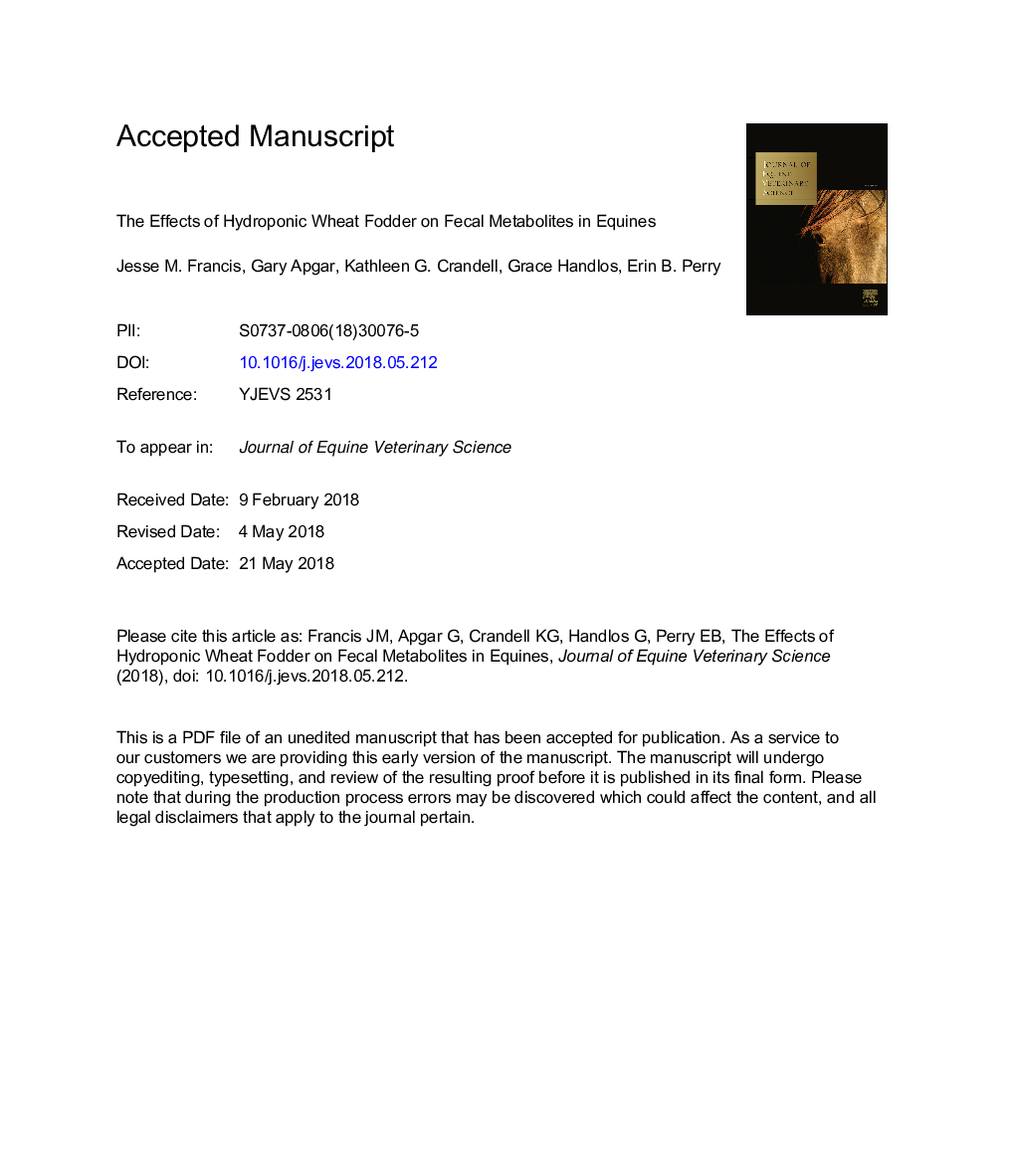| Article ID | Journal | Published Year | Pages | File Type |
|---|---|---|---|---|
| 10137259 | Journal of Equine Veterinary Science | 2018 | 36 Pages |
Abstract
There are currently no published data on the effects of fodder in horses. Eight Quarter Horse mares were randomly assigned to one of two diets: control horses received 2% of their body weight (BW) in hay (dry matter [DM]); treatment (TRT) horses received 1% of their BW in hay (DM) and 2% of BW in fresh wheat fodder (as fed [AF]) divided into two equal feedings offered at 0600 and 1800 for 5 weeks. Body weight, hoof temperature, and fecal samples were collected once weekly and orts were collected after every meal. Fecal samples were analyzed for pH, ammonia, volatile fatty acid, DM, ash, neutral detergent fiber, acid detergent fiber, nitrogen, crude protein, and ether extract values. Data were analyzed as a completely randomized design comparing weekly means using PROC MIXED of SAS (v. 9.4) and significance was established at P < .05. There was no effect of TRT on BW or hoof temperatures (P > .05). Fecal pH was lower (P ⤠.01) and isobutyric acid was higher (P ⤠.05) for horses receiving fodder and hay as compared with horses receiving hay alone. Dry matter intake (DMI) was also significantly higher (P < .0001) for horses consuming hay alone as compared with horses on the fodder with hay diet. These results indicate that using fodder affects fecal metabolites associated with digestion, and horses were able to maintain BW even with lower DMI.
Keywords
Related Topics
Life Sciences
Agricultural and Biological Sciences
Animal Science and Zoology
Authors
Jesse M. Francis, Gary A. Apgar, Kathleen G. Crandell, Grace C. Handlos, Erin B. Perry,
